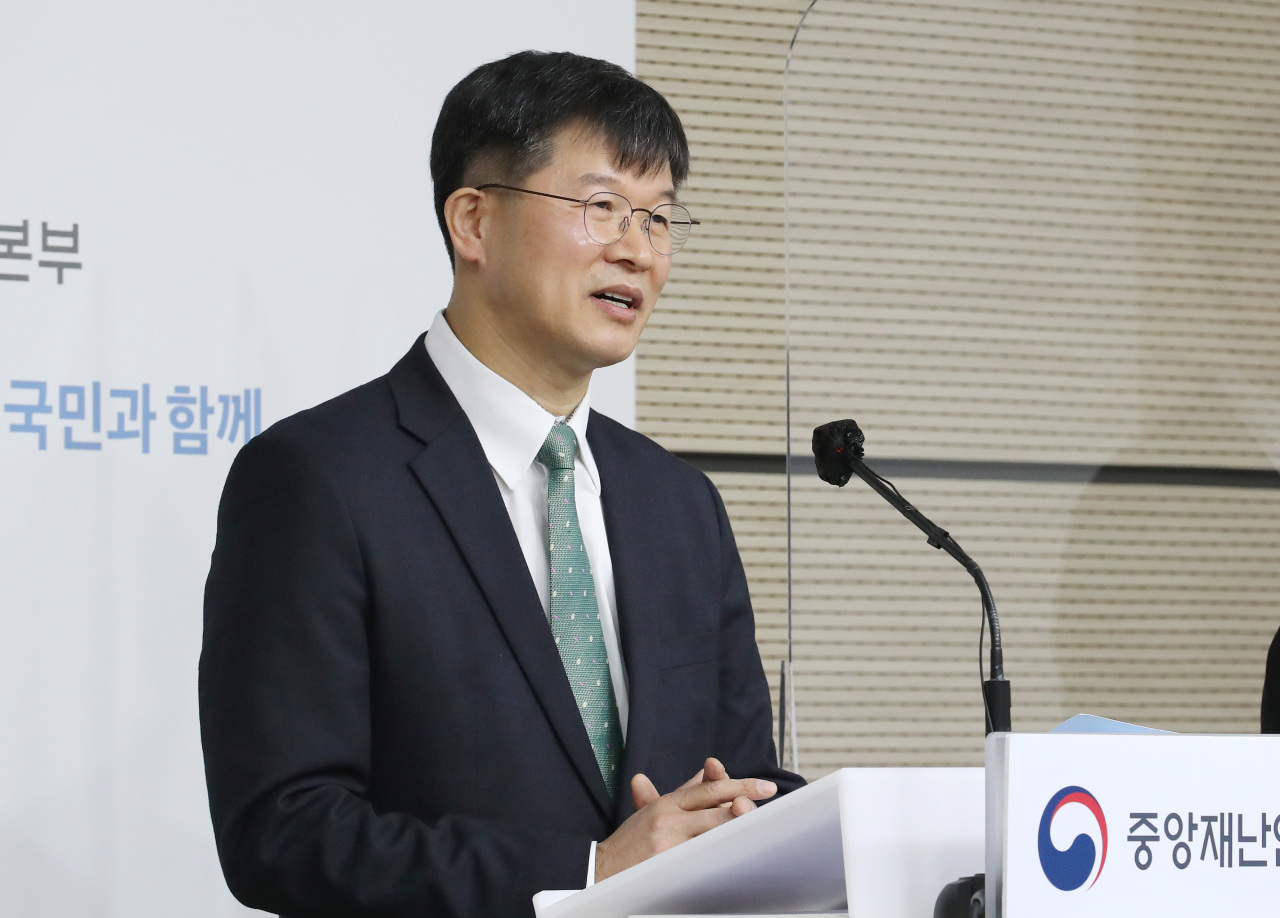 |
Health Ministry senior official Lee Gi-il speaks during a press briefing Thursday to announce the government will run another iteration of the state-run medical licensing exam in January. (Yonhap) |
The government will allow fourth-year medical students to retake a state medical licensing exam they boycotted, a reversal of its previous position, as the prolonged COVID-19 pandemic threatens to cause a shortage of doctors.
The Central Disaster and Safety Countermeasure Headquarters said during a press briefing Thursday that the government will administer the practical test again in January as a precaution, to address the anticipated shortage of medical personnel next year.
“We are deeply sorry to people for causing confusion and disruptions in regards to the medical licensing exam,” Health Ministry senior official Lee Gi-il told reporters during the briefing.
Lee said the move was made to ensure the government carries out its public health policies as planned, strengthen cooperation with the medical sector and better provide support for vulnerable populations.
Under the government’s plan, those who missed the practical portion of the test in September will be allowed a second chance in January. South Korea holds written and practical tests separately each year to evaluate medical students before they can become licensed doctors.
Without the retakes, the country was set to have 2,700 fewer new doctors than planned next year.
Around 86 percent of fourth-year medical students boycotted this year’s state-run medical licensing exam in protest of the government’s since-abandoned medical reform plan, meant to increase the supply of doctors in rural areas.
For the practical portion of this year’s state-run exam, which took place in September, only 14 percent of the 3,172 qualified students actually registered. Only 365 test-takers passed both portions of the test and earned their medical licenses this month.
Thousands of young doctors and medical students staged walkouts and held rallies to oppose the plan to increase admission quotas at medical schools, recruit 4,000 more doctors by 2032 and deploy three-quarters of these new doctors to rural areas for at least 10 years.
The government later backed down and promised to suspend the plan after facing strong opposition from doctors’ groups, which argued that Korea had the best health care access among Organization for Economic Cooperation and Development member states.
Yet conflict continued between the medical sector and the government over whether to give fourth-year medical students a second chance to take the state medical licensing exam.
Doctors’ representatives asked that the fourth-year students be given a second chance to take the exam, warning of major losses at small hospitals in nonmetropolitan areas and significant delays in providing essential care for patients.
The government, however, remained firm until this month, citing negative public opinion and saying no makeup exams would be offered for test-takers who boycotted the exam voluntarily.
But as the coronavirus pandemic gained strength in Korea and is expected to stay strong for months, the government has backed down from its original stance.
Prime Minister Chung Sye-kyun said in a radio interview earlier this month that the government had noticed public opinion easing up toward medical students.
By Ko Jun-tae (
ko.juntae@heraldcorp.com)








![[Today’s K-pop] Blackpink’s Jennie, Lisa invited to Coachella as solo acts](http://res.heraldm.com/phpwas/restmb_idxmake.php?idx=644&simg=/content/image/2024/11/21/20241121050099_0.jpg)